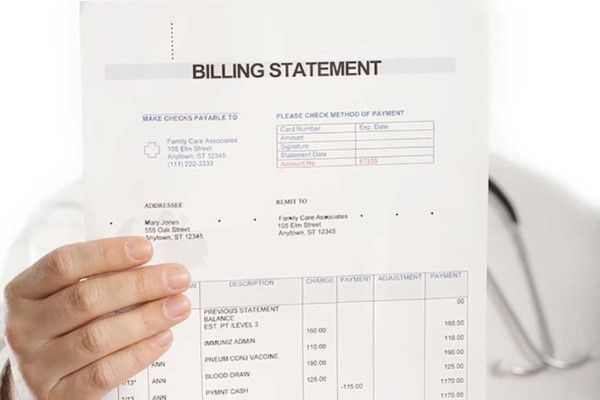Healthcare and medical organizations are exposed to many risks which can be critical to your efforts at ensuring compliance. Therefore, you should conduct regular compliance risk assessments to satisfy compliance rules and avoid hefty fines. This guide explores the common areas where risks are present and how you can protect against them.
What is Compliance Risk Assessment?
The simplest definition of compliance risk assessment is to identify potential areas of risk that can lead to potential compliance violations. The process of identifying those risks is only the first step. Once you identify the compliance risks, they are analyzed for their potential impact on the organization and prioritized based on the repercussions of non-compliance.
The potential penalties for non-compliance can range from hefty fines to your business losing its legal right to operate. As both of these consequences can be serious, you should pay for due diligence to analyze risks and avoid them.
One of the areas at the highest risk of non-compliance or violations in the medical industry is the coding and billing department. It pays to know how and where these potential risks could occur so that you can create remediation plans to avoid them.

Auditing Your Medical Coding & Billing Practices
Regular audits are vital in a healthcare organization's commitment to quality patient care. This industry is ever-changing so it is important to stay abreast with the latest regulations to comply with them.
Conducting audits on medical coding and billing should be a part of your compliance risk assessment procedure. There are two types of audits that you can do: internal audits and external audits. It would be good practice to consider each type of auditing to ensure your medical coding and billing practices are compliant.
Internal Audit
Designating your internal audit team is highly recommended for compliance purposes. Once you appoint an internal audit team, they will be responsible for ensuring the transparency and efficiency of your coding and billing practices. The in-house auditing team should also schedule and conduct regular reviews of your existing processes to align with existing compliance requirements.
To increase the efficiency of your auditing process, you should choose a qualified team of auditors t. They should have access to a template and pre-fabricated algorithm and this will provide efficiencies for each activity. This process is recommended for medium to large-sized healthcare practices for timely monitoring of your compliance activities and because you will be able to afford the in-house team of auditors.
External Audit
While you might have an in-house auditing team to help with compliance risk assessments, it is also ideal for working with external auditors. The external audits follow a well-designed audit process that identifies issues your internal auditors might overlook. The good thing about having an external auditing team is that they can customize their approach to suit your practice. In addition, they will also have a benchmark to follow and compare your processes to identify where improvements could be implemented.
Both types of audit processes have a similar goal - to identify risks and ensure compliance. Do consider the pros and cons of each type of audit service and compare it against your organizational needs. The goal is to choose the method that will ensure the best integrity and accuracy of the audit process.
Advantages of Medical Coding and Billing Audit
Investing in medical coding and billing offers a multitude of benefits to your organization. The following are some of the notable advantages if you hire the right team of external or internal auditors.
1. Enhanced coding and billing compliance
It is not uncommon to hear stories about hefty fines being levied against healthcare practices because of coding and billing mistakes that are not compliant with HIPAA laws. To avoid the same thing from happening to your organization, investing in auditing services is a must.
The audit process will reveal deficiencies in your coding and billing practices. It is part of your compliance risk assessment to ensure that you follow the best practices in line with the HIPAA rules and regulations. Based on the audit report, you can identify the corrective actions to be taken so that the same mistakes are not made in the future.

2. Streamlined medical workflow
Regular audits raise the level of standard for your medical coding and billing team. You can use your audit report to implement policies and procedures that are aligned with existing compliance regulations.
This approach fosters a culture of compliance within your organization and its staff members. Your coding and billing team instills the value of compliance in their work and promotes transparency in the delivery of work.
3. Superior claims performance
Conducting audits can significantly improve your claims performance since there is a lesser likelihood of having claims rejected. The average medical billing denial in the medical industry is around 5 to 10 percent. When your claims are rejected, it can be a huge blow to your organization's cash flow.
Some of the top reasons why claims are denied are lack of documentation, errors in the claims form, duplicate submission, and lack of pre-authorization. Timely audits prevent such issues from happening because you can rectify the errors before the claims are rejected. This simple step can facilitate financial growth in your healthcare business.
4. Healthy relationship with medical partners
The patient-provider relationship is a crucial factor in the success of a medical or healthcare organization. However, the relationship you have with partners such as insurance and claims providers can also be significant.
Improving your medical coding and billing practices is one way to do that. You can foster trust and loyalty among your business partners, which helps your business to thrive.
Final Thoughts
Compliance risk assessment like auditing medical coding and billing is a huge step toward scaling your medical practice. You can learn from the results of your audit process and use it as an opportunity to improve. The ultimate goal of conducting this audit practice is to achieve better outcomes for patients in healthcare delivery. Working with the best auditing team and experts in the industry is your ticket to realizing that goal.

